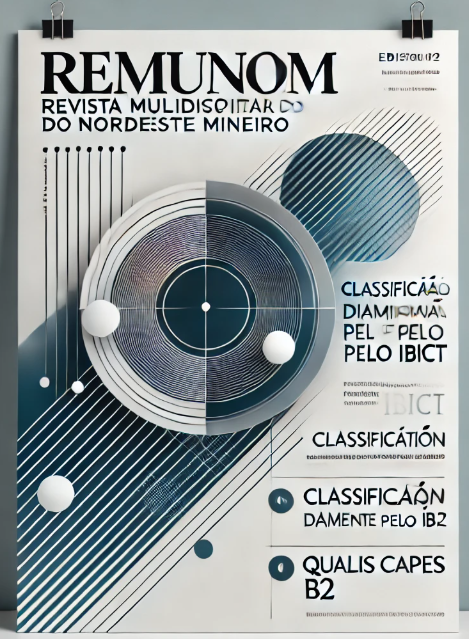O IMPACTO DA TECNOLOGIA NA LEITURA NO ENSINO SUPERIOR
DESAFIOS E POSSIBILIDADES PARA A FORMAÇÃO DE LEITORES CRÍTICOS NO CURSO DE PEDAGOGIA
DOI:
https://doi.org/10.61164/rmnm.v10i1.4003Keywords:
Tecnologia Digital; Leitura; Ensino Superior.Abstract
This article investigates the impacts of digital technologies on the reading habits of students enrolled in the Pedagogy course at the Faculdade de Ensino Superior de Linhares (FACELI). Reading practice, essential for academic and critical development, has been deeply influenced by the advent of digital media, which, while democratizing access to information, also introduces new challenges such as attention fragmentation and superficial reading. The research was conducted through a questionnaire sent to all enrolled students, resulting in 21 responses. The results indicate that, although technology provides practicality and expands research sources, it also encourages dispersion, quick reading, and often the consumption of superficial content. The theoretical analysis, based on authors such as Pierre Lévy, Maryanne Wolf, and Roger Chartier, emphasizes the need for a critical view of the use of technologies in teacher training, valuing practices that stimulate deep and reflective reading. It is concluded that, despite the challenges imposed by the digital era, technologies, when used with pedagogical intentionality, can be powerful allies in knowledge construction and in the development of reading competence.
References
BUZATO, Marcelo El Khouri. Letramento digital: desafios pedagógicos e reflexões sobre a formação do professor. 2006.
BUZATO, Marcelo El Khouri. Letramentos digitais e formação de professores. São Paulo: Portal EducaRede, 2006. Disponível em: https://www.researchgate.net/publication/242229367_Letramentos_Digitais_e_Formacao_de_Professores. Acesso em: 17 abr. 2025.
CARR, Nicholas. The shallows: what the Internet is doing to our brains. New York: W. W. Norton & Company, 2011.
CASTELLS, Manuel. A sociedade em rede: a era da informação: economia, sociedade e cultura. Vol. 1. Tradução de Roneide Venâncio Majer; Jussara Simões. São Paulo: Paz e Terra, 1999.
CHARTIER, Roger. A ordem dos livros: leitores, autores e bibliotecas na Europa entre os séculos XIV e XVIII. Brasília: Editora UnB, 1994.
CHARTIER, Roger. Do códex à tela: as trajetórias do escrito. In: CHARTIER, Roger. A ordem dos livros: leitores, autores e bibliotecas na Europa entre os séculos XIV e XVIII. Brasília: Editora UnB, 1994. p. 95–110.
CHARTIER, Roger. A aventura do livro: do leitor ao navegador. São Paulo: Editora UNESP, 1998.
FERRARO, Anamaria. Escola e produção do analfabetismo no Brasil. Educação & Realidade, Porto Alegre, v. 12, n. 2, p. 5–20, jul./dez. 1987.
FLICKINGER, Hans-Georg. A caminho de uma pedagogia hermenêutica. Campinas: Autores Associados, 2010.
FREIRE, Ana; KLEIMAN, Angela. Alfabetização e letramento. Disponível em: https://fr.scribd.com/document/334624338/KLEIMAN-Angela-Alfabetizacao-e-Letramento-1. Acesso em: 18 mar. 2025.
GEE, James Paul. Social linguistics and literacies: ideology in discourses. London: Taylor & Francis, 1996.
HEATH, Shirley Brice. Protean shapes in literacy events: ever-shifting oral and literate traditions. In: TANNEN, Deborah (Ed.). Spoken and written language: exploring orality and literacy. Norwood, N.J.: Ablex, 1982. p. 91–117.
HEATH, Shirley Brice. Ways with words: language, life, and work in communities and classrooms. Cambridge: Cambridge University Press, 1982.
INSTITUTO BRASILEIRO DE GEOGRAFIA E ESTATÍSTICA – IBGE. Internet já é acessível em 90,0% dos domicílios do país em 2021. Disponível em: https://agenciadenoticias.ibge.gov.br/agencia-noticias/2012-agencia-de-noticias/noticias/34954-internet-ja-e-acessivel-em-90-0-dos-domicilios-do-pais-em-2021. Acesso em: 27 abr. 2025.
INSTITUTO PRÓ-LIVRO. 5ª edição da pesquisa Retratos da Leitura no Brasil. São Paulo: Instituto Pró-Livro, 2019. Disponível em: https://www.prolivro.org.br/5a-edicao-de-retratos-da-leitura-no-brasil-2/a-pesquisa-5a-edicao/. Acesso em: 3 mai. 2025.
KENSKI, Vani Moreira. Educação e tecnologias: o novo ritmo da informação. 3. ed. Campinas: Papirus, 2007.
KENSKI, Vani Moreira. Tecnologia e ensino: o impacto das tecnologias no cotidiano escolar. Campinas: Papirus, 2007.
KLEIMAN, Angela. Os significados do letramento: uma nova perspectiva sobre a prática social da escrita. Campinas: Mercado de Letras, 1995.
KLEIMAN, Angela. Texto e leitura: novas perspectivas. Campinas: Pontes, 1995.
LÉVY, Pierre. Cibercultura. Tradução de Carlos Irineu da Costa. São Paulo: Editora 34, 2009.
MARCUSCHI, Luiz Antônio. Gêneros textuais: definição e funcionalidade. In: DIONÍSIO, A. P.; MACHADO, A. G.; BEZERRA, M. A. (Orgs.). Gêneros textuais e ensino. Rio de Janeiro: Lucerna, 2001. p. 19–36.
MARCUSCHI, Luiz Antônio. Linguística textual: leitura e produção de textos. São Paulo: Cortez, 2001.
ONG, Walter J. Oralidade e escrita: a tecnologia da palavra. Tradução de Ricardo P. & A. S. Costa. Campinas: Papirus, 1986.
ONG, Walter J. Orality and literacy: the technologizing of the word. New York: Routledge, 1986.
TÜRCKE, Christoph. Sociedade excitada: filosofia da sensação. Campinas: Editora da Unicamp, 2010.
TÜRCKE, Christoph. A sociedade do espetáculo e a fragmentação da atenção. 2010.
VILAÇA, Irene. Leitura na era digital. Revista da Educação, v. 12, n. 2, p. 45–58, 2012.
VILAÇA, Jorge. Leitura digital e aprendizagem no ensino superior: o desafio da concentração. 2012.
WOLF, Maryanne. Proust and the squid: the story and science of the reading brain. New York: HarperCollins, 2018.
XAVIER, Antônio. Novos gêneros digitais. Revista da Educação, v. 12, n. 2, p. 59–72, 2005.
XAVIER, Erica Norimar Bock. Leitura digital: da informação à formação do leitor. 2011. Dissertação (Mestrado em Educação) – Universidade Federal de Santa Maria. Disponível em: https://repositorio.ufsm.br/handle/1/17941. Acesso em: 17 abr. 2025.
XAVIER, Lígia. Gêneros digitais e a transformação da leitura e da escrita. 2005.
Downloads
Published
How to Cite
Issue
Section
License
Copyright (c) 2025 Revista Multidisciplinar do Nordeste Mineiro

This work is licensed under a Creative Commons Attribution-NonCommercial-ShareAlike 4.0 International License.




